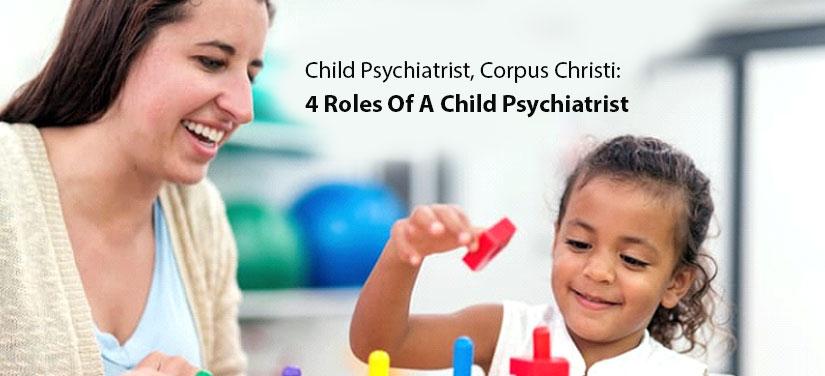Child Psychiatrist, Corpus Christi: 4 Roles Of A Child Psychiatrist

Most people require treatment for different mental health issues, including children. When a child is going through trauma, grief, separation, and sudden life changes, professional psychiatric help may be necessary.
Any psychiatrist would suffice, but one specialized in children’s cases is the best bet. So what role does a children’s mental health specialist play?
Are they important in the recovery journey? This article covers the crucial role they play. You can also see Dr. Anderson psychiatrist for more help.
Who Is A Child Psychiatrist?
A psychiatrist is a medical health professional specializing in mental health issues, including but not limited to substance abuse. According to biology, anyone who is in the ages between birth and adolescence? Puberty is a child.
Legally speaking, there are different age ranges for one to be considered a child, ranging from 16 and 18 in most countries.
Therefore, a child psychiatrist is a mental health professional specializing in mental health issues for persons between birth and puberty or under the specific legal age in a country.
Roles
1. Child Substance Misuse Issues
Substance use and misuse issues are not present only in adults. Even children, especially those in puberty, are prone to them.
A child psychiatrist helps young people to work through their addiction or possible addiction. Usually, the mental health expert directly addresses the addiction, use or abuse, and the underlying issues that may be causing it.
Some of the issues that lead to substance use issues in children include improper parenting, adolescence-induced rebellion, poor company, stress, and difficult transitions in the teenager's life.
Usually, treatment involves weaning the victim off of the substance, either immediately or gradually, depending on the type and extent of addiction.
Counseling and thorough psycho-emotional support follow to find the root cause. And, finally cutting the ties between the victim and the addition cause and source.
2. Learning Disabilities
Many instances may make conventional learning difficult or impossible for children. They may be due to either neurological or genetic factors. Sometimes, the learning disabilities are evident, whereas in others it may take years to uncover. In hidden instances, the child is mostly considered a slow learner.
The role of a psychiatrist in learning disabilities is first to identify them. They also work hand in hand with education professionals to tailor alternate learning methods for specific incidents.
Some of the most common direct learning disorders include dyscalculia, dysgraphia, and dyslexia. Other disorders related to learning are attention deficit hyperactivity disorder and dyspraxia. Check this link to see a few reasons why your child should be visiting a child psychiatrist.
3. Eating Disorders
People of child ages, especially adolescents, may suffer from eating disorders. Puberty usually comes with a lot of self-awareness that may cause image problems, especially in females. These problems may then translate to eating disorders. Some of the most common ones include;
- Anorexia Nervosa
- Bulimia Nervosa
- Binge eating disorder
- Pica
- Rumination disorders
Treatment of these disorders usually involves different medical professionals such as doctors and nutritionists to restore health and mental health professionals for extensive therapy.
4. Child Mental Health Issues
Children are vulnerable to developing mental and emotional problems. These especially occur in instances where there are cases of dysfunction, neglect, or highly stressful situations. Some common mental and emotional health issues include;
- Anxiety- Characterized by extreme, irrational fear or worry.
- Depression- Mood disorder often characterized by extreme sadness and a lack of desire for things.
- Obsessive-compulsive disorders- Happen when a child engages compulsively in certain behavior such as cleaning.
- Post-traumatic stress disorder- PTSD usually occurs after witnessing or experiencing traumatic life events such as being involved in an accident.
- Attention-deficit/ hyperactivity disorder- Often characterized by being excessively active or having trouble concentrating on a single task. Click here to read more.
Conclusion
Child psychiatrists play a fundamental role in ensuring a balance of behavioral, mental, and emotional health for kids. With their help, the kids can resolve issues such as mental health problems, eating, learning, and substance use disorders. Children may sometimes be able to vocalize what they are going through. Therefore, parents and caregivers need to keep a keen eye and seek help when they notice any strange symptoms. It is also important to note that psychiatric care, in most cases, costs money. Therefore, having payment systems such as health care insurance would go a long way. In the event of financial constraints, the children’s department may be of help.








